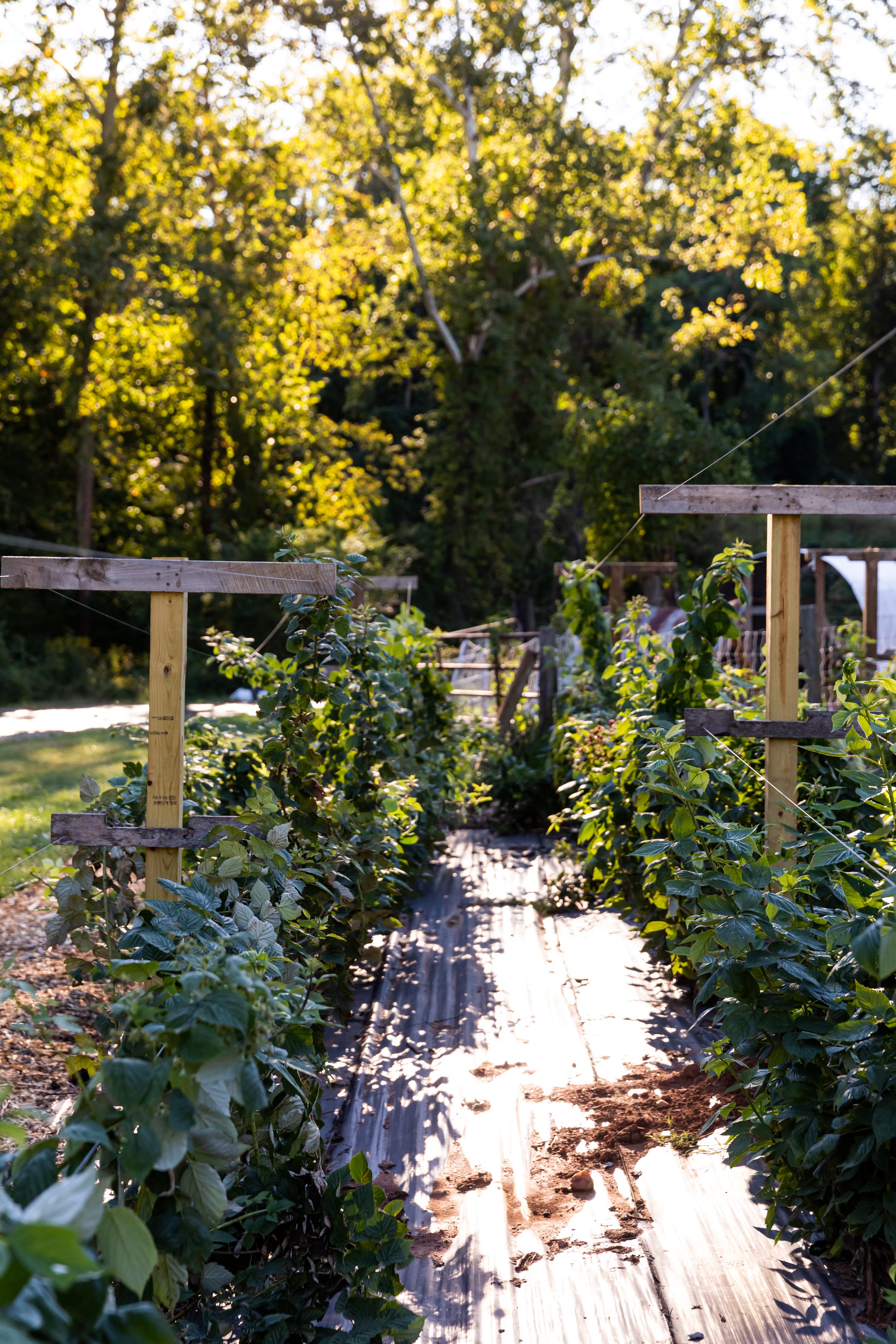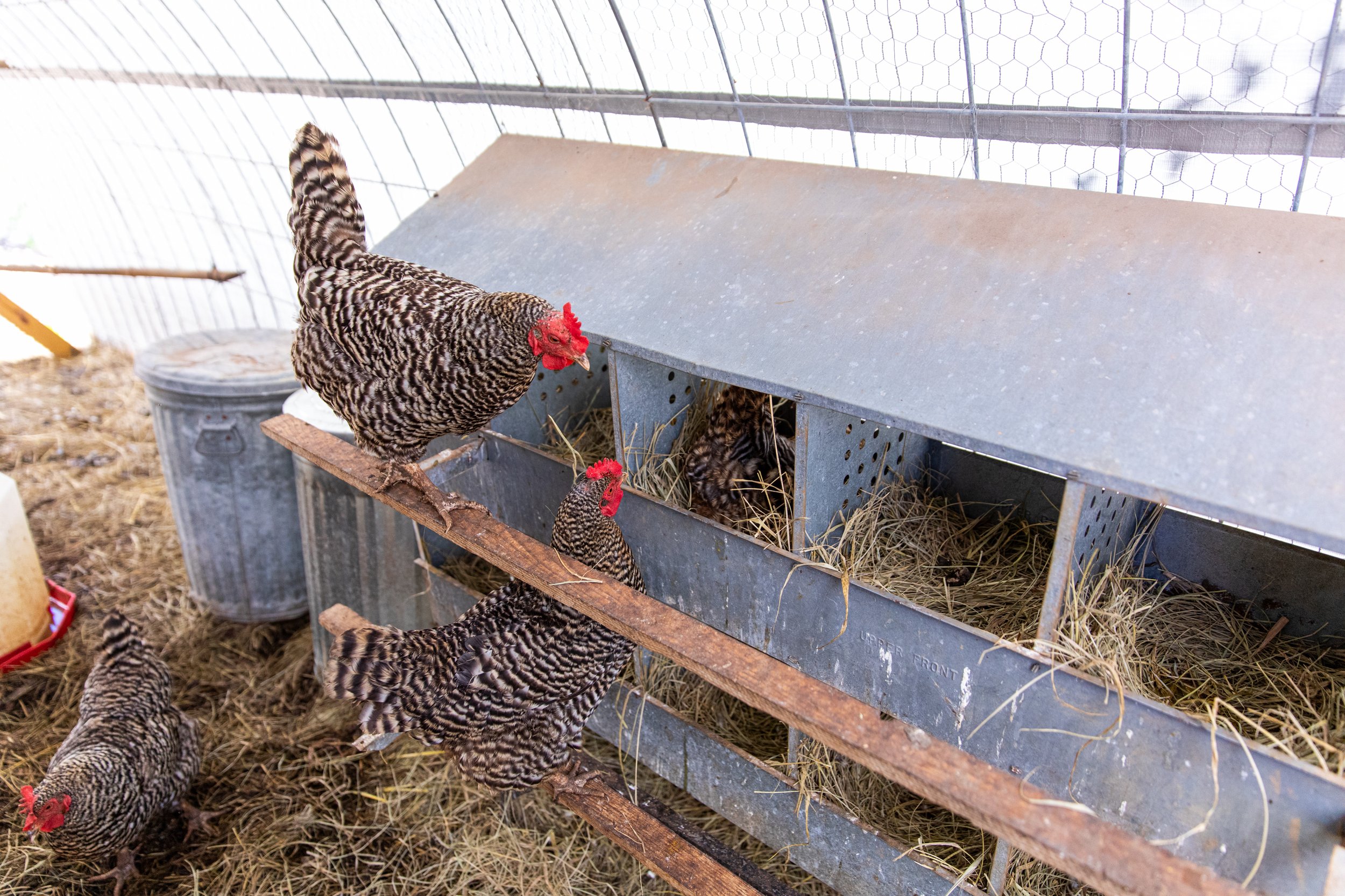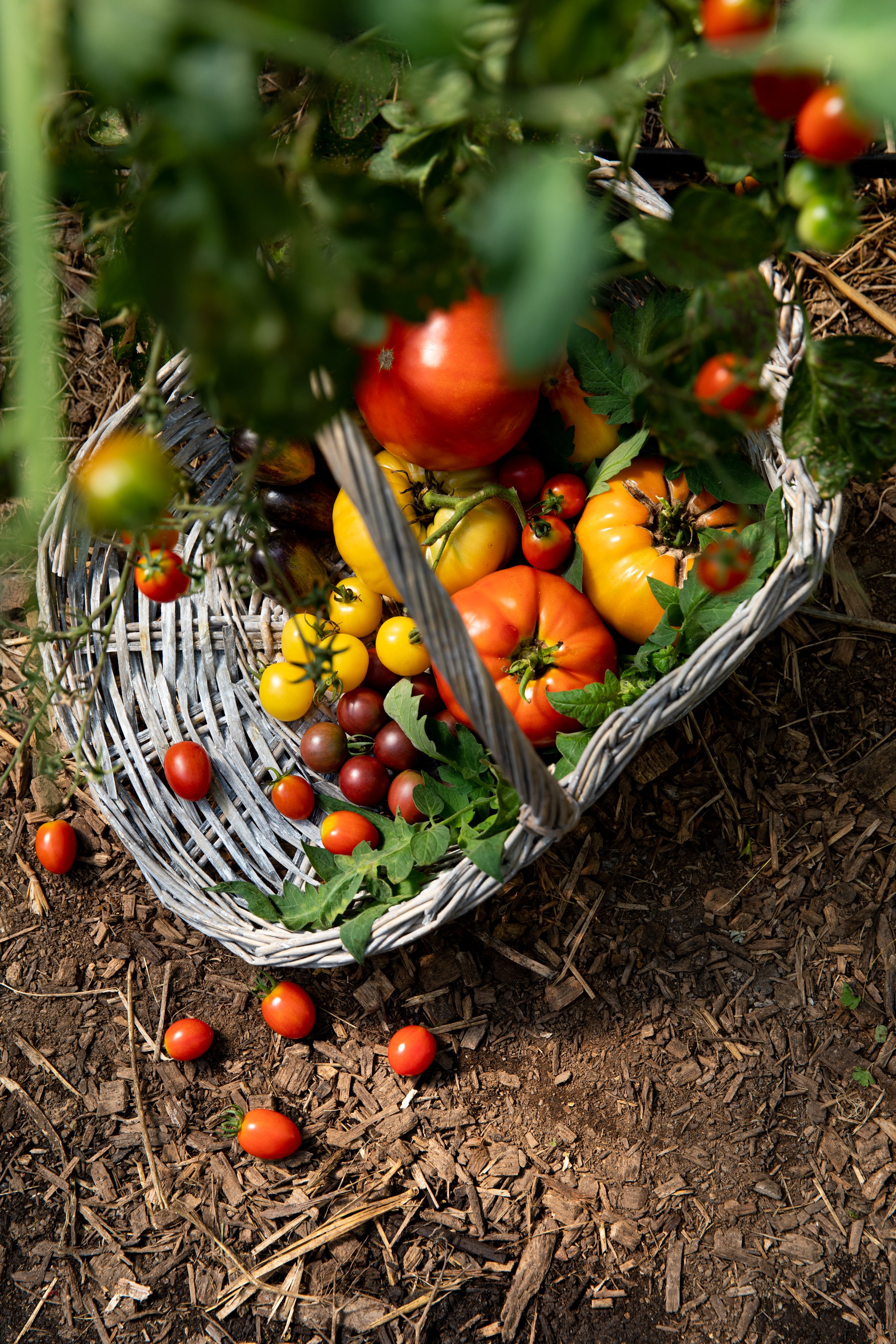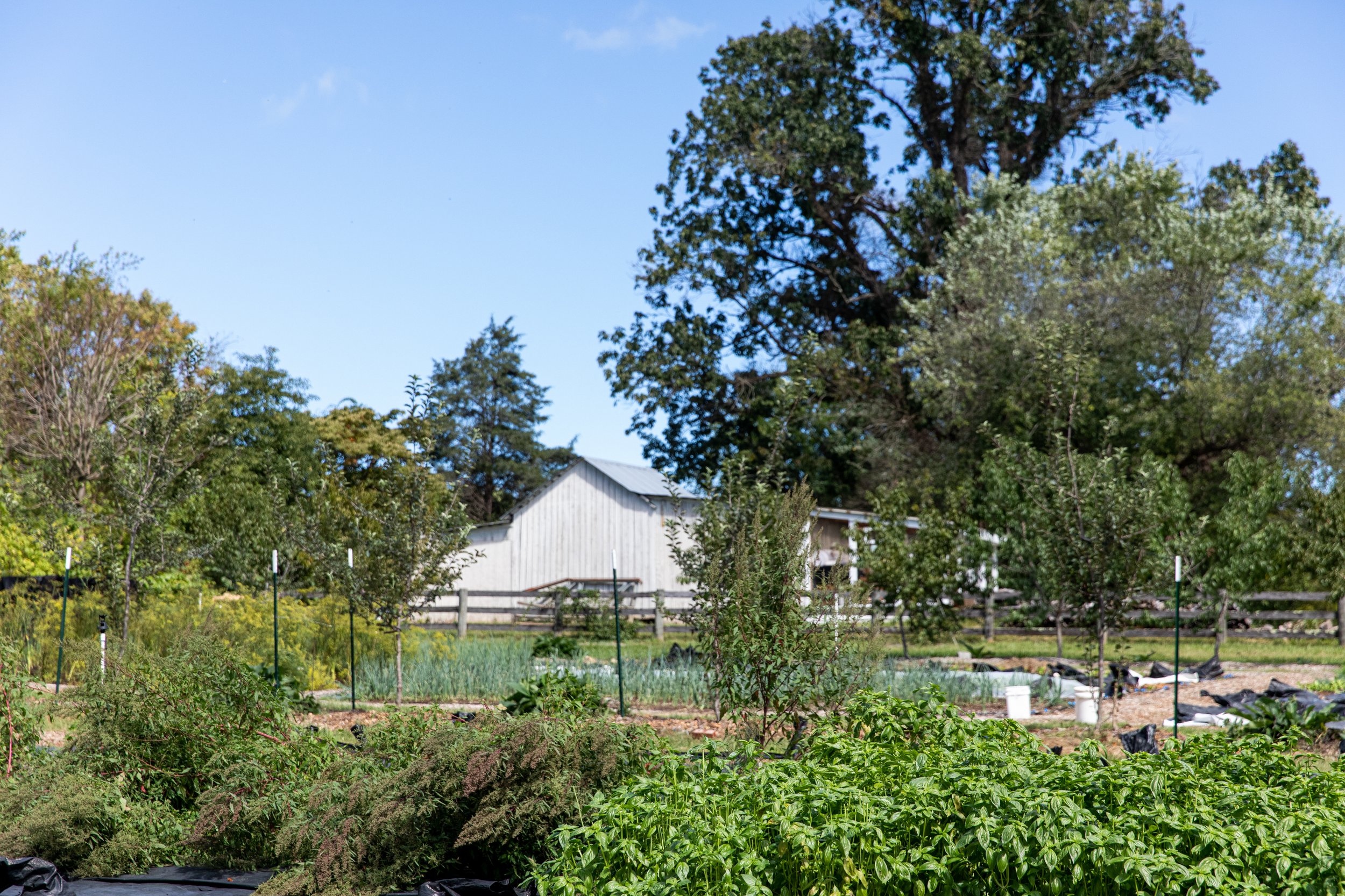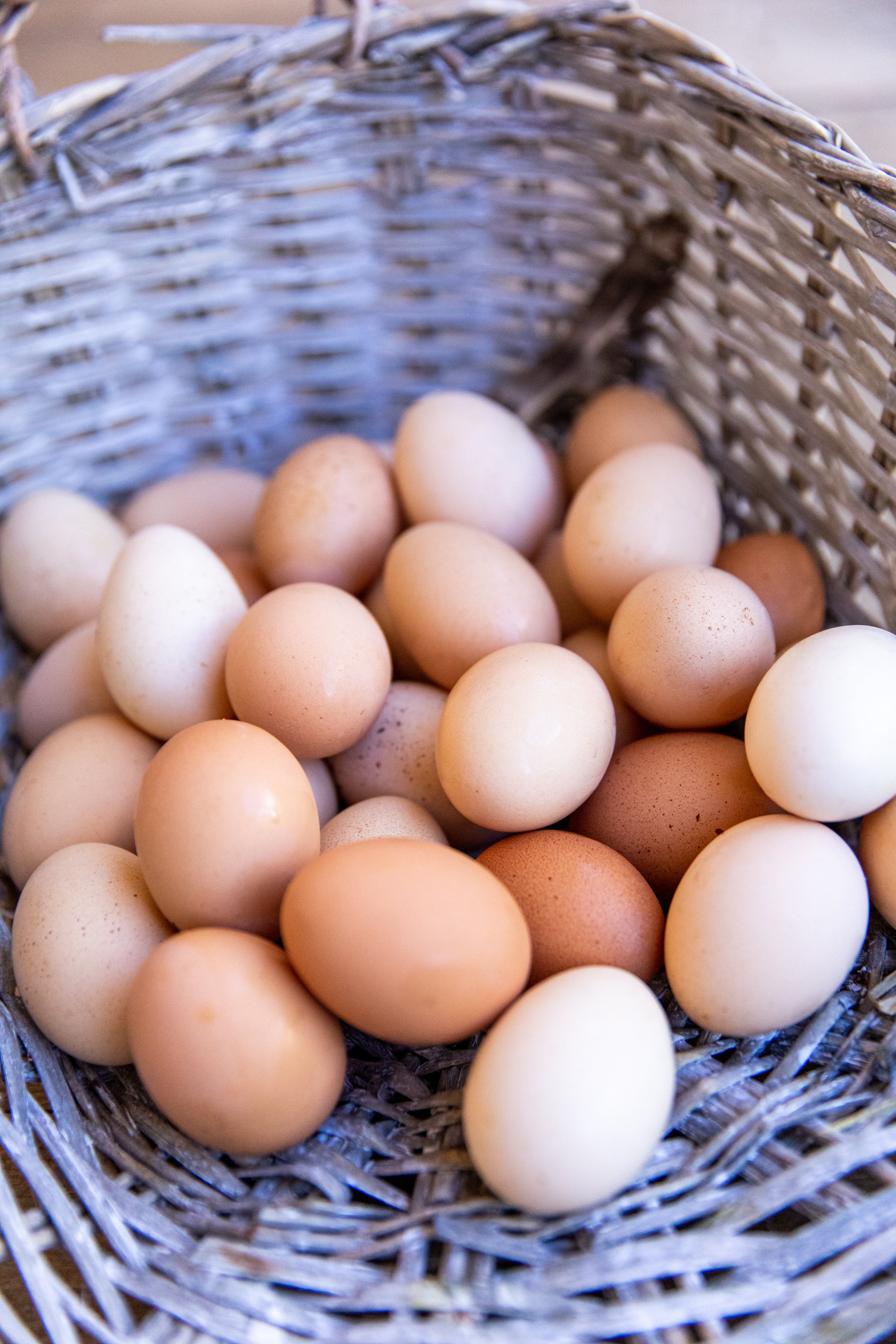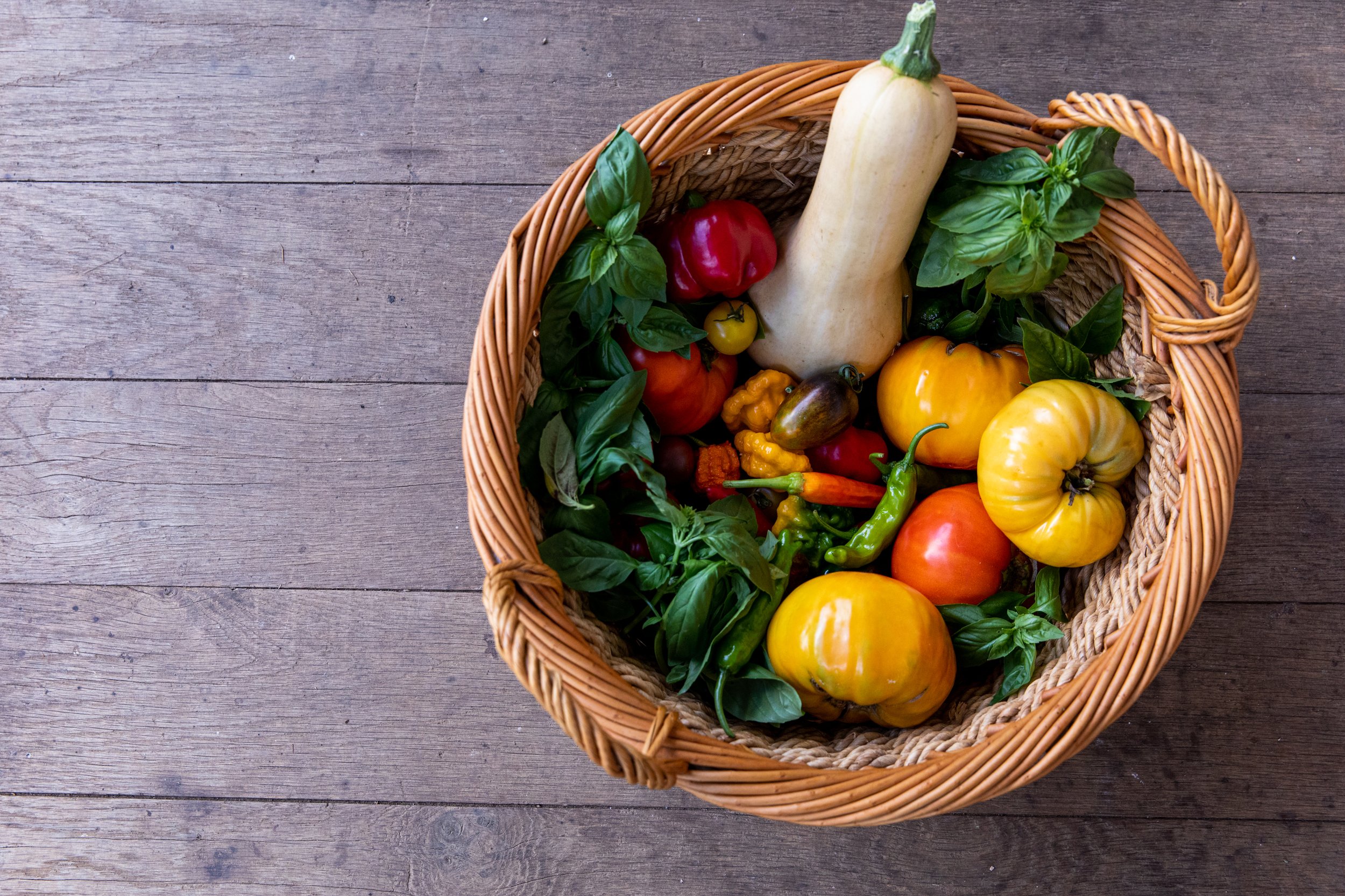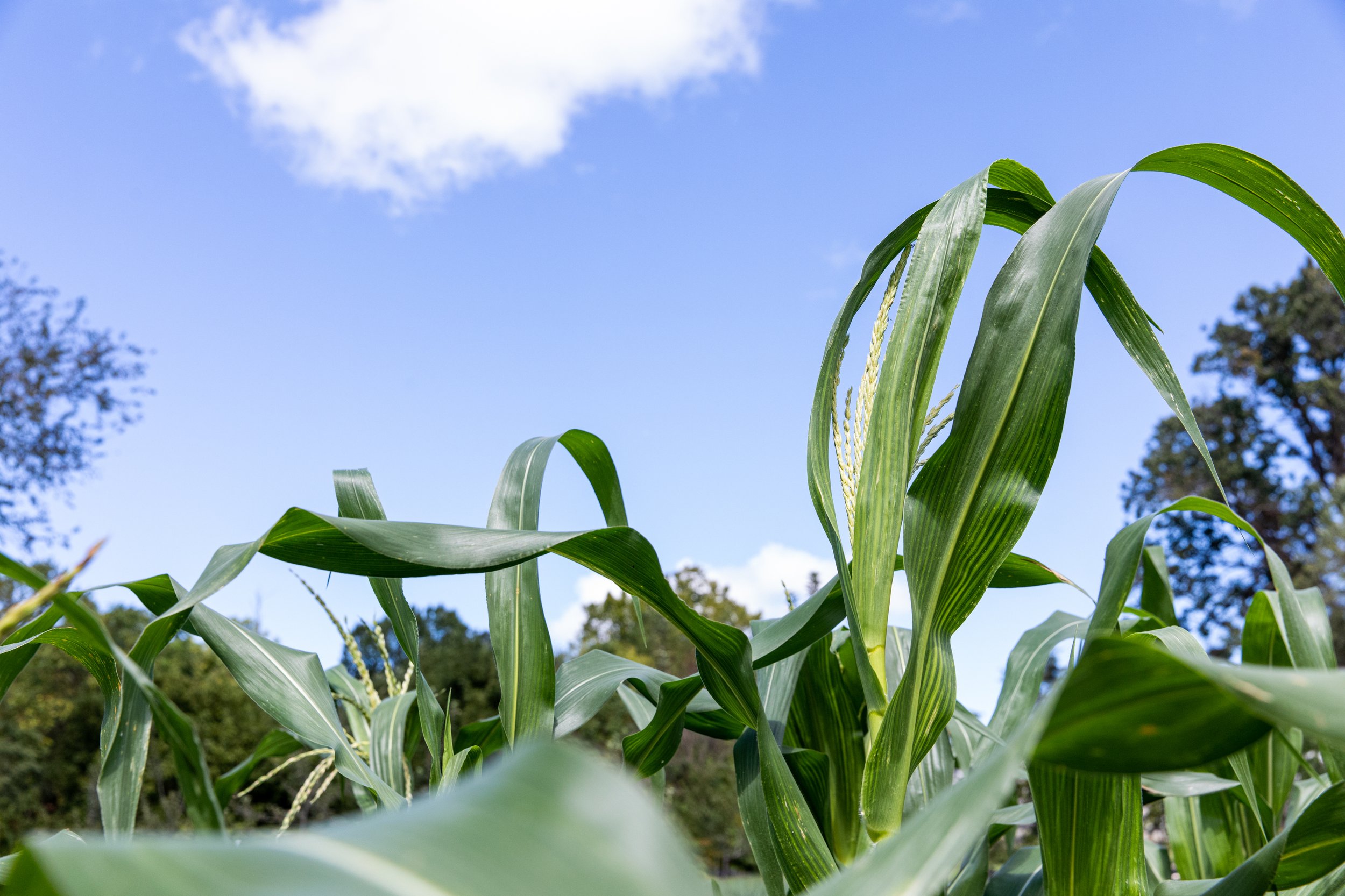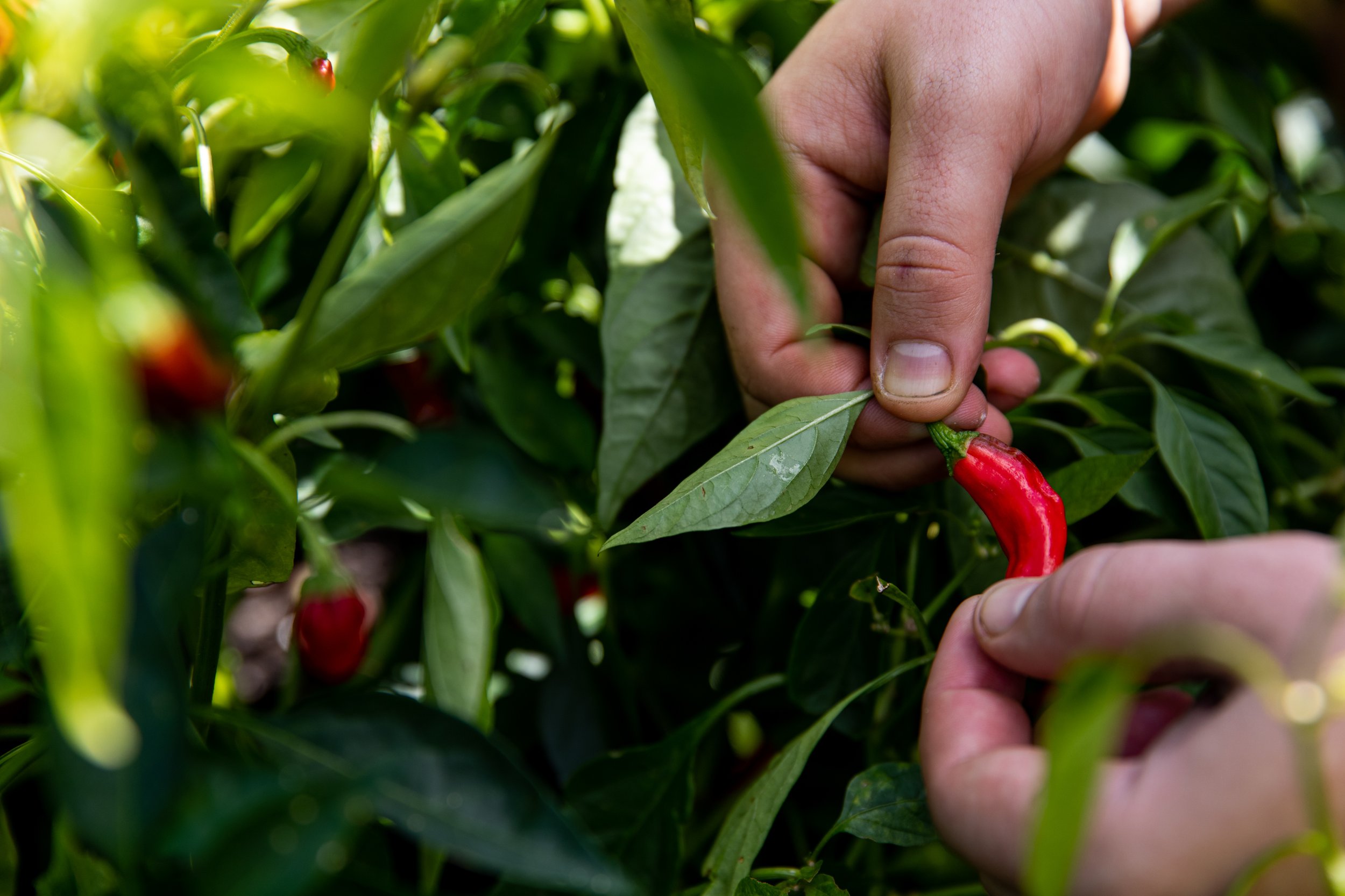THE FARM AT camp trapezium
Photo by Kate Magee
About the farm
How we started
We started our 2-acre no-till farm at Camp Trapezium in 2018 with the goal of implementing the principles of permaculture - the belief that everything on the farm can work together in becoming a self-sufficient ecosystem. We take that same approach to everything we do at Camp—everything we grow goes into the recipes developed by our pizza kitchen and brewers, either through fresh ingredients or preserved foods (and sometimes it goes to the chickens!) Connectivity is key—the farm, the beer, the food, the animals, and the people.
Our Farm Manager, Dylan York, joined our team in October 2022 and lives on site with his family, including his very friendly Newfoundland dog, Finn. Don’t be startled if Finn comes to give you a slobbery kiss while you tour the farm.
Dylan was a brewer for the last decade before taking over the farm. While he may not have farmed professionally, Dylan has been an avid at-home gardener for years with a passion for farming and all things fermentation. Dylan’s wife, Zoe, has worked for Trapezium’s parent company, Waukeshaw, for over 4 years and manages the 8-suite Airbnb at Camp Trapezium among other things.
The Principles
No till farming—No till farming is the practice of disturbing the soil as little as possible and keeping it planted as much as possible. This facilitates the natural ecosystem in the soil to function at its full potential, helping the plants receive maximum nutrients and decreasing the needs for non-organic inputs like fertilizers, pest control chemicals, etc. Not only does no till farming allow for the maximization of the natural ecosystem within the soil, but it also traps carbon that would otherwise be released into the environment with standard till farming.
Zero food waste + composting methods—We utilize a variety of composting techniques to ensure that no food on the property goes to waste. The farm uses a mix of bokashi composting, hot composting (aerobic), Johnson-Su Bioreactors, and our flock of chickens and ducks to use every last scrap!
Farm Elements
Garden Beds—Our farm is home to 110 garden beds that we use to grow both standard and unique crops and flowers. We work to ensure all of our bases are covered by growing all the things you’d expect to see in your salad or on a pizza-think lettuce, tomato, onion, basil, the basics. But we also grow all kinds of unique crops to keep our kitchen menu eclectic, like guindilla peppers, habanada heatless peppers, ground cherries, and more heirloom tomato varieties than you can imagine.
Orchards—We currently have peach, pear, apple and plum trees as well as rows of raspberry and blackberry bushes that allow us to use our own homegrown fruit in our beers, hence the “Orchard Series.” We continue to add new varieties to expand our offerings.
Mushroom House—We will be restarting our mushroom house in 2023. Stay tuned for the varieties we’re growing and keep an eye out for them on our menu!
Hoop House—Our hoop house allows us to get a head start on our growing season and have more control over our climate and irrigation schedules for our crops. It is a highly productive part of our farm that is home to tomatoes, herbs, and salad greens.
Chickens + Ducks—Our farm is home to 30 chickens and 4 ducks who, along with helping our compost our food scraps, provide us with eggs and endless enterainment.
What we’re growing:
Blackberries
Raspberries
Tomatoes (Heirloom): Early Girl Tomatoes, Cherry tomatoes
Jalapenos
Shishito Peppers
Banana Peppers
Carrots
Yellow & White Onions
Red Onions
Scallions
Cucumbers
Cilantro
Parsley
Swiss Chard
Kale
Cut Flowers
Nasturtium
Watermelon
Cantaloupe
Bell Peppers
Carving Pumpkins (and seeds!)
Butternut Squash
Lettuce Greens
Red Beets


